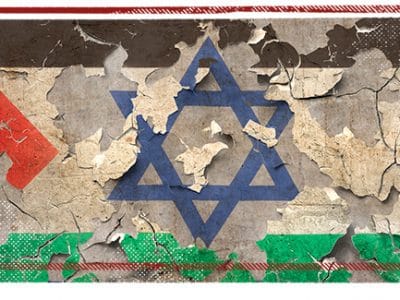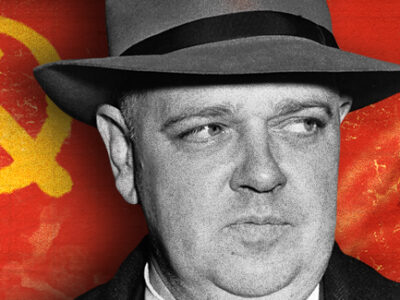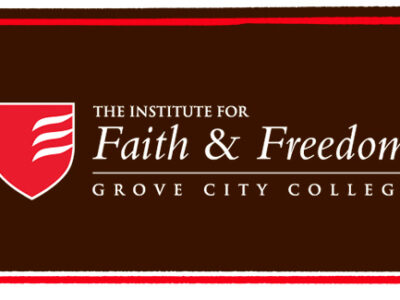Kosovo has declared independence from Serbia, with American support. The process is likely to be both divisive and destabilizing.
The United States has no intrinsic interest in Kosovo’s status. The best position would be one of neutrality.
Unfortunately, it’s too late to adopt this sensible strategy. In 1999, Washington led NATO in a military campaign to aid the ethnic Albanian forces.
After presiding over faux “negotiations” predicated on Kosovo’s ultimate independence, the Bush administration plans to recognize the new nation. But Washington insists that all ethnic Serbs in Kosovo must remain there.
Sorting through the conflicting claims involving Kosovo ain’t easy. Once Serbian heartland, Kosovo now hosts an ethnic Albanian majority, in part due to Yugoslav dictator Josip Broz Tito’s efforts to dampen Serbian nationalism in the multi-ethnic communist state.
In the 1980s, Serbians complained of misconduct by Kosovo’s ethnic-Albanian majority. For instance, in 1982 the New York Times reported on “almost weekly incidents of rape, arson, pillage and industrial sabotage, most seemingly designed to drive Kosovo’s remaining indigenous Slavs—Serbs and Montenegrins—out of the province.” That changed after Slobodan Milosevic ignited Serb nationalism in 1987.
When Yugoslavia subsequently broke up, the secession of Bosnia and Croatia produced gruesome conflicts. Although ethnic Serbs were responsible for the bulk of atrocities, Bosnians and Croats freely murdered Serbs and each other.
Serb-Albanian relations in Kosovo deteriorated as the 1990s proceeded: Serb rule was heavy-handed; the Kosovo Liberation Army (labeled a “terrorist” group by the United States) began violent operations; the Serbian government responded brutally.
Since 1999 the territory has been run by the United Nations and NATO. After the allied victory, ethnic Albanians kicked out 200,000 or more Serbs and other minorities. Kosovo’s guerrillas took over as leaders—of both the political system and abundant criminal enterprises.
Three years ago ethnic Albanian mobs murdered ethnic Serbs, and wrecked Serbian homes, churches, and monasteries. Observers, including the European Commission, have noted the Pristina government’s lack of progress toward responsible rule.
No surprise, Washington and the Europeans want to be done with the mess that they helped to create. Desultory negotiations over Kosovo’s status inevitably failed.
The allies made clear to the ethnic Albanians that independence would result if no accord was reached, so no accord was reached. The Serbs refused to be bought off with the promise of European Union membership and the Russians said no to another Western fait accompli. Now Kosovo has declared independence and the United States and several European governments have recognized the new state.
The most sensible policy for Washington would be to step back and indicate that there will be no recognition without genuine negotiations—that is, talks without a predetermined outcome between Kosovo and Serbia. On the table should be all options, including overlapping citizenships (Kosovo, Serb, European Union), and allowing the ethnic Serbs concentrated in Kosovo’s north, principally around Mitrovica, to remain in Serbia.
In short, the United States should halt the independence bandwagon. Washington has no intrinsic reason for objecting to Kosovo becoming a separate nation. But the allies have consistently sided with the ethnic Albanians, encouraging their intransigence.
Maybe a peaceful outcome was never possible. But we will never know because of U.S. and European intervention.
The allies continue on this path today. Now they, or at least most of them, have given the green light to a declaration of independence by Pristina.
Alas, the outcome of this strategy is not likely to be pretty. There will be a new, violent, and unstable state in the Balkans, permeated by crime and possibly open to terrorists.
Allied policy will push Serbia away from Europe, conceivably leaving a large economic and political hole in the Balkans. Western support for the ethnic Albanians already has radicalized Serbian politics, with the nationalist Tomislav Nikolic nearly winning the presidency.
Support for Kosovo’s independence will encourage secessionist movements in the Balkans and elsewhere. Western dismissal of Russia’s interests will make Moscow more antagonistic and assertive.
Failing to resolve the status of Serbs within Kosovo risks triggering conflict between ethnic Albanians and Serbs, and possibly Kosovo and Serbia. Nice work all around.
Washington and the Europeans still have time to mitigate at least some of the consequences of their past meddling in the Balkans. But it is even more important that policymakers learn a broader lesson: stay out of other people’s affairs whenever possible. The United States never had any interest at stake in Kosovo that warranted inaugurating war or risking renewed conflict.




